Crawford International Lonehill
Conversation Lab • August 30, 2023
Pyjama and Bookworm Day
Oh what fun we always have at our Pyjama and Bookworm day. Our young Crawfordians came to school in their pj's, shared their favourite books with friends and drank hot chocolate. Even mom and dad could enter into the fun by joining in the Big People Book Swop. A great and exciting way to end a week.
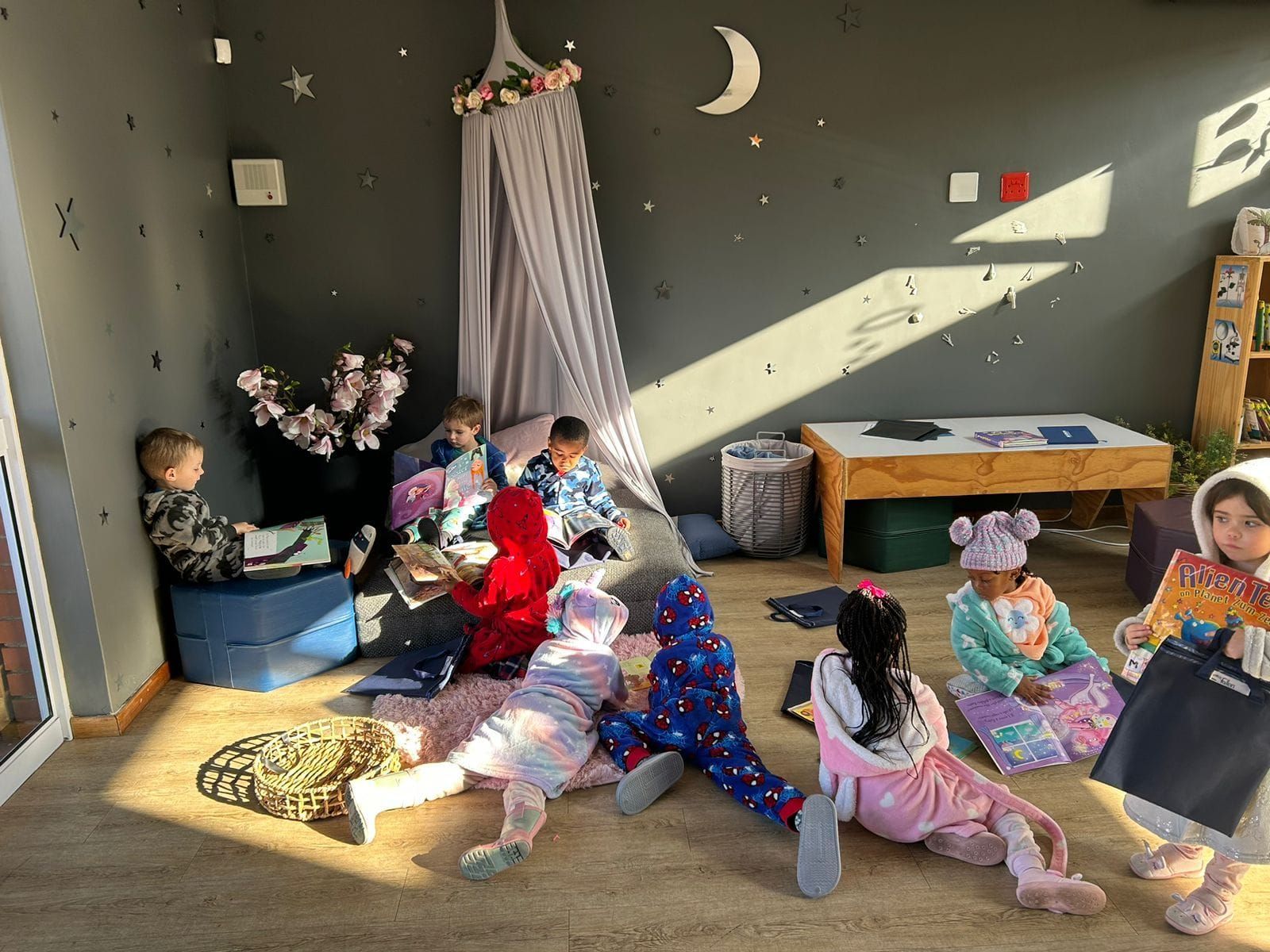

Classroom Wonder Walls
A unique feature graces every classroom within our Pre-Primary – the "Wonder Wall." This is just one of the multifaceted techniques we employ to guide children in comprehending their surroundings and putting their learning into practice.
The Wonder Wall creates a haven of curiosity within our classrooms, entirely dedicated to the inquisitive nature of our young students. Every query finds its place on this wall, fostering an environment where children can embrace their wonders and hypotheses with a sense of security.
Interestingly, these questions often present fascinating challenges for our teachers too, delving into subjects as diverse as Tectonics, Astrophysics, and Supply Chains. Our Wonder Walls are indeed gateways to exploration and engagement


Grade 0, 1 & 2 Sports Day
Our Grade 0’s joined the Foundation Phase at the Prep on the Hedgehog Field for a proper winter’s morning of exhilarating sports. Parents were invited to watch and later compete in the parent race!
This was a very exciting morning for our juniors and there was lots of enthusiastic chatter prior to the build up to their entrance onto the field with their very loud and fun war cries.
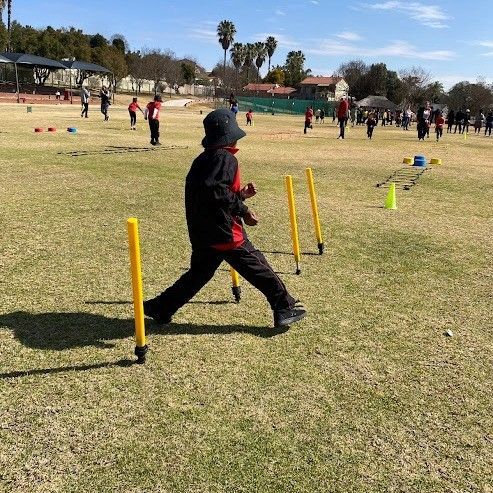

Meet Augustine Lumbala: Lonehill’s Next Soccer Star

Steering the U13 School Team as captain, Augustine's commitment is solid, clocking in three training sessions a week. His dedication earned him a coveted spot at the District Team Trials earlier this year, where he outshone competitors to secure a place representing Gauteng as a formidable Left Back. The Gauteng Soccer Team's impressive third-place finish was a testament to his prowess.
Through rigorous training both in school and at soccer camps, he's honed fundamental skills that set him apart. His personal favourite? The 'body feint', a move executed with a subtle shoulder drop to out manoeuvre defenders.
With his sights set on emulating his brother's journey, Augustine aspires to one day play for a university overseas.
College and Pre-Primary Art Collaboration
What happens when creativity meets collaboration? Our senior art students from our College campus teamed up with our Pre-Primary to bring a burst of colour and inspiration to our tiny tots' classrooms! They transformed the pre-primary chalk wall into a canvas of sweet joy, drawing delightful items inspired by the theme of kitchen, love, and baking. The wall is now a vibrant backdrop for our little ones' interactive learning journey, where the top half showcases the intricate chalk art done by our talented seniors, and the bottom half invites the toddlers to create their own mini-masterpieces. Our art seniors had a blast and found inspiration in the contagious laughter and chatter of our young artists. Special thanks to Teacher Sharon Cretney and Principal Caroline for making this creative collaboration possible and College Art and Design teacher Ms Fernanda Ribeiro for overseeing this project with the college students.
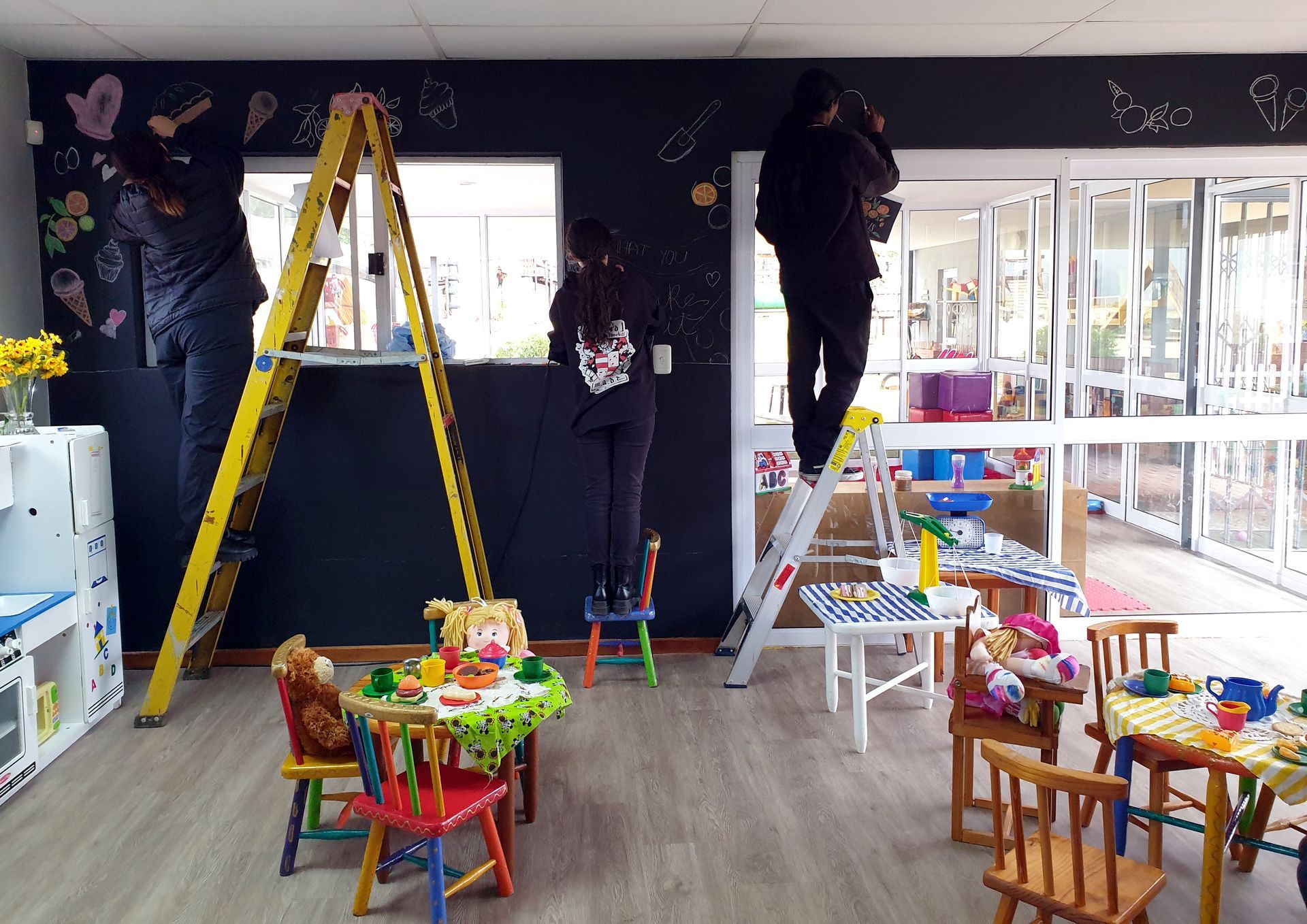
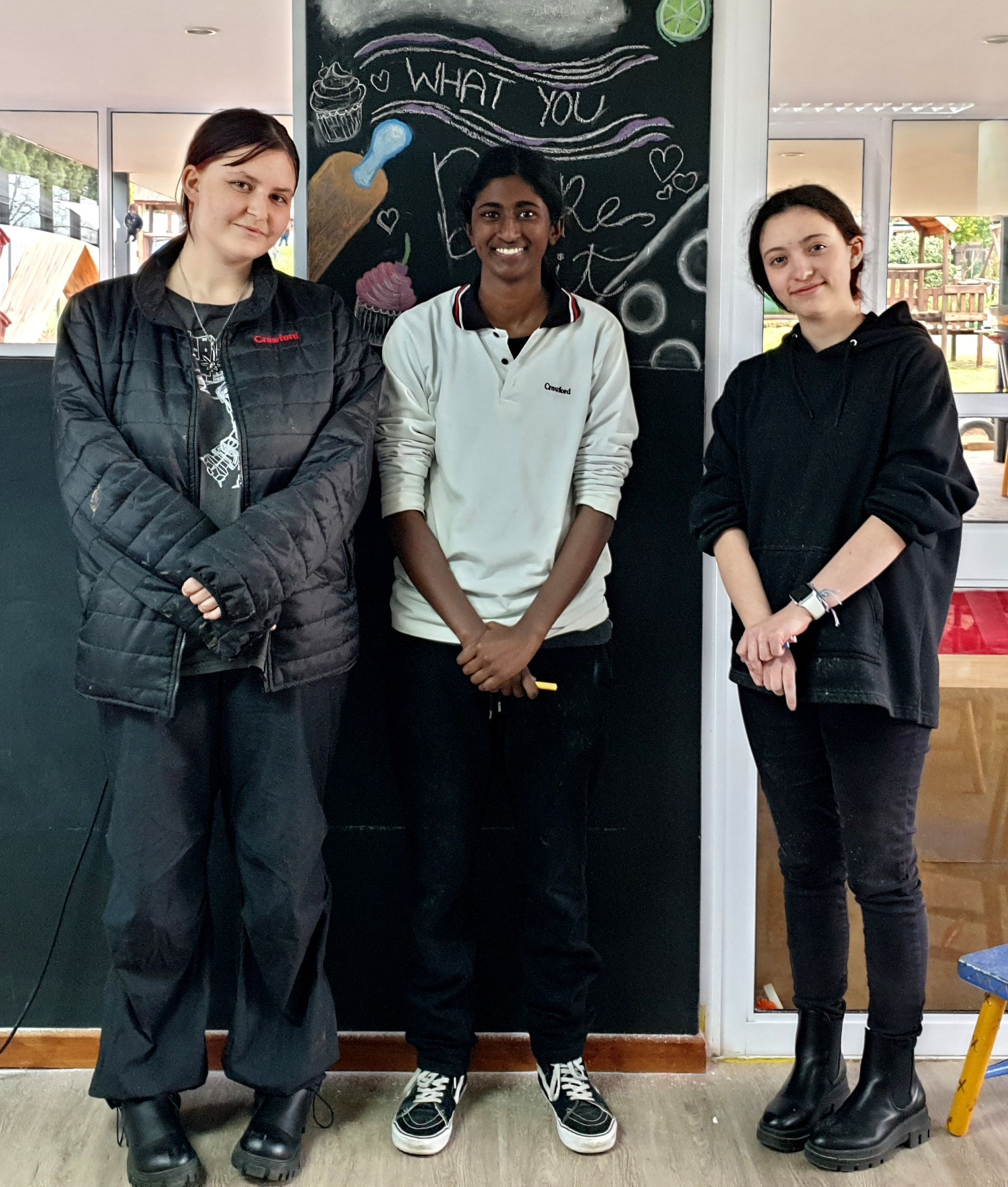
Celebrating Class of 2013's Reunion
A heartwarming reunion was crafted for the class of 2013, marking their 10-year milestone at the College. Gathering 56 alumni from around the world, it was a delightful affair that rekindled lasting bonds forged in school. As cherished memories converge, these events hold a unique significance, shaping the path ahead. To our returning alumni, a warm welcome home. Your gift of a beautiful tree will stand as a symbol of the enduring friendships and connections you've woven at Crawford Lonehill and beyond.


Crawford Lonehill Cares

Together with the steadfast support of our school community, we extend our helping hand to uplift the community. Your ongoing positive impact resonates deeply, and we express our gratitude for your unwavering dedication. It's with pride that we impart the value of humility to our students through these acts of kindness, teaching them the profound significance of helping those in need. Join us in reflecting upon the diverse initiatives our collective campus embraced throughout the month of August.
KITTY AND PUPPY HAVEN

It’s always heartwarming to receive such thoughtful donations from schools. Teaching their students from a young that every little bit goes a long way and that every bag of food toy or tin makes a difference in a shelter animal’s life.
A huge THANK YOU to Crawford International Lonehill Pre-Primary for bringing this PAWTASTIC donation through and for thinking of our babies and to all the children and their parents who contributed! We are filled with gratitude!
Daily Bread
Every Friday each grade at the Crawford International Lonehill Prep donates sandwiches to Daily Bread.
Our students bring a sandwich that we ask to be prepared by themselves along with a cool drink and fruit. Some students go over and above this and bring boxes filled with freshly packed sandwiches.
It is truly wonderful to see their smiles when they see photos of how many little children they are feeding for the day.
In the photo we have Thomas delivering one of many boxes of sandwiches to Daily Bread.
Daily Bread was established in 2008. The Centre has grown with many projects being run daily.
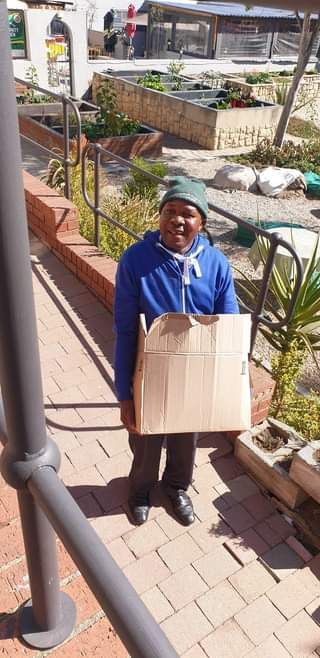
27 Community Outreach champions
These are our 27 Community Outreach champions who selflessly worked all morning at Rise against Hunger. Such a wonderful cause and thank you for caring, as well as our teachers who always accompany our students at every event.
“HELP US HELP THEM”- Rise against Hunger













